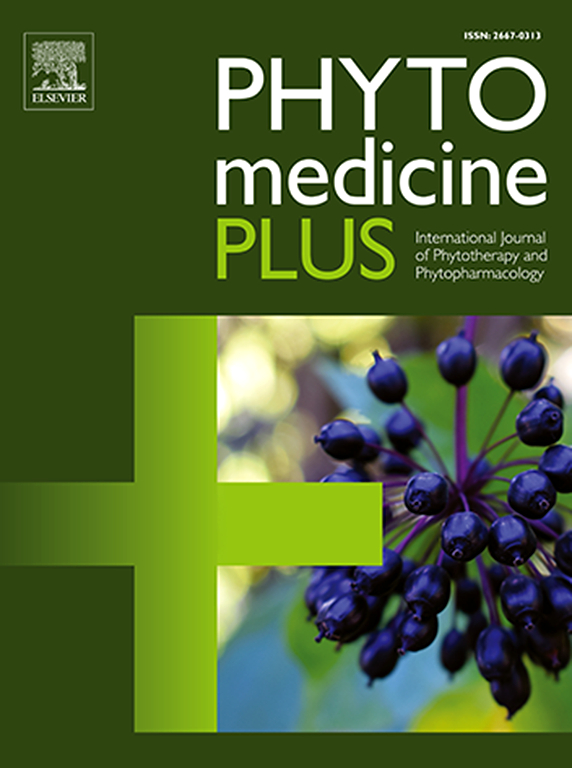Recent investigation of the medicinal plants’ effectiveness in the natural management of urinary and gallstones: a review
Q3 Pharmacology, Toxicology and Pharmaceutics
引用次数: 0
Abstract
Background
The search for natural management techniques using medicinal plants is driven by the inescapable health problems of kidneys and gallstones, which can lead to serious complications and acute pain. These issues are often linked to an unbalanced diet, inadequate hydration, family history, and high doses of certain drugs. Conventional treatments for urinary and gallstones have limited efficacy and do not always guarantee a complete cure, which increases the risk of complications, particularly recurrence.
Purpose
This review paper thoroughly examines medicinal plants' potential to treat and prevent gallstones and urinary tract stones and envision a future when natural remedies integrate with conventional medical practices.
Study design
This study looks at kidney and biliary diseases, particularly stones, explores conventional treatments (drugs, lithotripsy, and surgery), and highlights medicinal plants used as natural remedies. Several medicinal traditions are examined for their historical use and preparations. By analyzing phytochemistry and prevention mechanisms, research focuses on medicinal plants' active principles and modes of action and their therapeutic and preventive effect against stones. It also examines how these plants can reduce the risk of stone formation, provide an alternative to conventional treatments, and reduce the need for surgery. The study also discusses the importance of a suitable diet and lifestyle to prevent stones. The advantages and disadvantages of herbal remedies are also explored in addition to recommendations for future clinical research into their efficacy.
Conclusion
Medicinal plants could be a viable alternative to traditional treatments, especially for biliary and kidney stones. Although this study shows promise in both prevention and treatment, more clinical trials are necessary to fully investigate the efficacy and safety of these natural remedies to confirm their value in a broader medical setting.

药用植物自然治疗泌尿和胆结石的研究进展综述
由于肾脏和胆结石等不可避免的健康问题可能导致严重的并发症和急性疼痛,人们一直在寻找利用药用植物进行自然管理的技术。这些问题通常与饮食不平衡、水合不足、家族史和某些药物的高剂量有关。泌尿和胆结石的常规治疗效果有限,并不能保证完全治愈,这增加了并发症,特别是复发的风险。目的:本文全面探讨了药用植物治疗和预防胆结石和尿路结石的潜力,并展望了自然疗法与传统医学实践相结合的未来。研究设计本研究着眼于肾脏和胆道疾病,特别是结石,探讨了常规治疗方法(药物、碎石和手术),并强调了用作自然疗法的药用植物。研究了几种医学传统的历史用途和制剂。通过分析植物化学和预防机制,重点研究药用植物的作用原理、作用方式及其对结石的治疗和预防作用。它还研究了这些植物如何降低结石形成的风险,提供传统治疗的替代方案,并减少手术的需要。该研究还讨论了适当的饮食和生活方式对预防结石的重要性。本文还探讨了草药的优点和缺点,并提出了对其疗效的未来临床研究的建议。结论药用植物治疗胆结石和肾结石是一种可行的替代方法。虽然这项研究显示了在预防和治疗方面的希望,但需要更多的临床试验来充分调查这些自然疗法的有效性和安全性,以确认它们在更广泛的医疗环境中的价值。
本文章由计算机程序翻译,如有差异,请以英文原文为准。
求助全文
约1分钟内获得全文
求助全文
来源期刊

Phytomedicine Plus
Medicine-Complementary and Alternative Medicine
CiteScore
3.70
自引率
0.00%
发文量
178
审稿时长
81 days
期刊介绍:
 求助内容:
求助内容: 应助结果提醒方式:
应助结果提醒方式:


